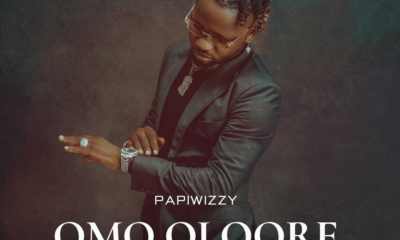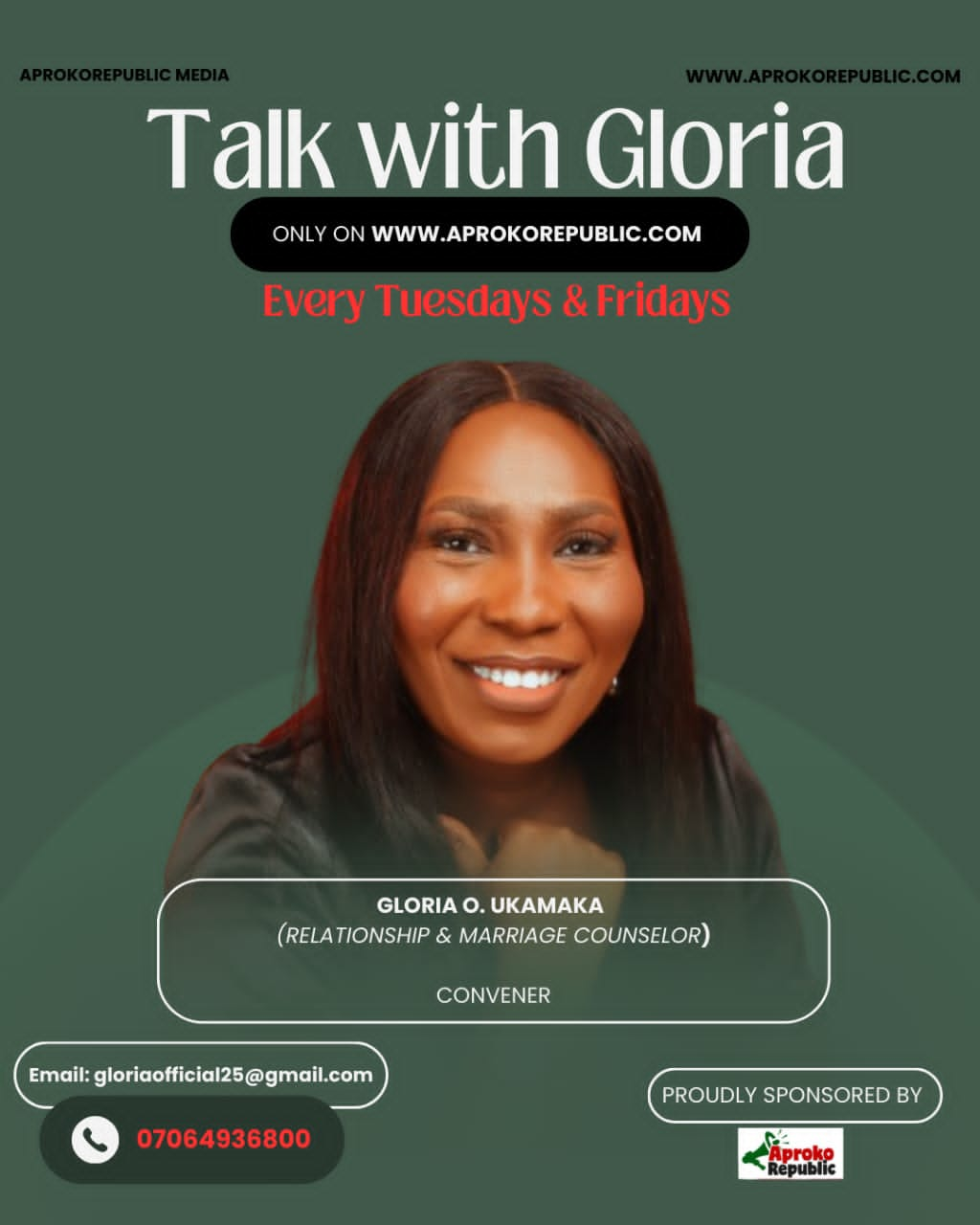Talk With Gloria
By Gloria O Ukamaka
I had a conversation with a man recently that shook me.
Successful. Respected. Provider. Husband. Father. By every visible measure, he was doing everything right. His wife often told people how blessed she was to have him.
But when we got talking, he said something that stopped me cold:
“I don’t think I’ve ever felt loved. Not really.”
I was confused. “What about your wife? She clearly adores you.”
He shook his head. “She appreciates what I do. She’s grateful for what I provide. But loved? I don’t know what that feels like.”
Here was a man surrounded by love, but completely unable to receive it. And the worst part? He thought that was normal. He thought men weren’t supposed to need love, just respect, provision, duty.
That statement haunted me for days because it revealed something we’ve all been missing: knowing someone’s love language is useless if you don’t have the capacity to love.
And this isn’t just about women feeling unloved. Men carry this wound too, maybe even deeper, because they’ve been taught that needing love makes them weak.
Gary Chapman gave us an incredible gift when he introduced the five love languages. It revolutionized how we understand relationships. But here’s what he didn’t deeply address, and what I believe is the actual foundation: you can know all five love languages and still fail spectacularly at love.
Because love languages are the what and the how. But capacity is the ability.
And without ability, technique means nothing.
WHAT IS THE CAPACITY TO LOVE?
Let me be clear about what I mean by capacity.
The capacity to love is the internal ability to both give and receive love authentically. It’s not about knowing what to do. It’s about having the emotional, spiritual, and psychological resources to actually do it, and to recognize it when it’s being done for you.
Think of it like physical strength. You can know the proper form for lifting weights, have the perfect technique, watch all the tutorials. But if you don’t have the muscle capacity, you still can’t lift the weight. Knowledge without capacity is powerless.
The same applies to love.
You can read every relationship book, memorize your partner’s love language, attend every seminar, but if you lack the capacity to love, you’ll still come up empty. And worse, even when someone loves you perfectly, you won’t be able to receive it.
Whether you’re single and preparing for relationship, dating and building connection, or married and trying to sustain love, this is where most connections are actually breaking down, not in technique, but in capacity.
THE GIVING SIDE: WHEN YOU CAN’T EXPRESS LOVE (EVEN WHEN YOU TRY)
I know a man who knows his wife’s love language is words of affirmation. He knows it theoretically. He’s read it in books, heard it in counseling, seen it on Instagram posts.
But every time he tries to speak it, the words get stuck in his throat. They feel foreign. Forced. Fake.
Why?
Because his past taught him that vulnerability gets punished. His father mocked emotional expression. His first relationship ended when he opened up. So now, even though he knows what to do, he doesn’t have the capacity to do it.
His love is locked behind walls he didn’t even know he built.
This is what happens when we lack capacity on the giving side:
- You know she needs quality time, but you can’t be emotionally present because you’re carrying unhealed wounds
- You know he needs physical touch, but intimacy terrifies you because of past trauma
- You know they need acts of service, but you’re so depleted from your own unmet needs that you have nothing left to give
Here’s the painful truth: You can’t give what you don’t have.
And this isn’t about laziness or selfishness. It’s about capacity. You’re trying to pour from an empty cup, and then feeling like a failure when nothing comes out.
Many people in relationships right now are performing love, not experiencing it. They’re checking boxes: “I spent time with you today. I said I love you. I bought you a gift.” But there’s no life in it because the capacity isn’t there.
THE RECEIVING SIDE: WHEN YOU CAN’T ACCEPT LOVE (EVEN WHEN IT’S GIVEN)
Now here’s the side we talk about even less: some people can’t receive love even when it’s perfectly given.
That man I mentioned earlier? People were showing him love. His wife genuinely adored him. But he couldn’t feel it.
Why?
Because his capacity to receive was damaged. Years of being taught that men don’t need emotional connection, relationships where his value was tied only to what he produced, a deep belief that needing love made him weak, all of it created a wall that blocked love from reaching his heart.
He could see the actions. He could acknowledge the effort. But he couldn’t receive the love behind it.
This is what I mean when I say you must have the capacity to appreciate what’s being given. Appreciation isn’t just saying “thank you.” It’s the ability to let love land in your heart and change you.
I’ve seen it happen so many times:
- He buys her thoughtful gifts (acts of service), but she’s suspicious: “What did he do wrong?”
- She speaks words of affirmation, but he brushes them off: “She’s just saying that.”
- They create quality time, but the receiver is distracted by insecurity: “He’d rather be somewhere else.”
When you lack the capacity to receive, love becomes invisible. It’s there, but you can’t see it. It’s being spoken, but you can’t hear it.
And the tragic part? The giver starts to feel rejected. The receiver feels unloved. And both are drowning while standing in a pool of love they can’t access.
HOW CAPACITY AFFECTS BOTH GIVER AND RECEIVER
Let me share a short story with you.
A couple I know: He shows love through acts of service. He fixed things, handles responsibilities, takes care of logistics. That’s his language, and he speaks it fluently. She needs words of affirmation, she needs to hear “I love you,” “I’m proud of you,” “You matter to me.”
But here’s the problem:
He doesn’t have the capacity to give words because he grew up in a home where love was shown, never said. Emotional expression feels unnatural to him. So even though he knows she needs it, he can’t access it.
She doesn’t have the capacity to receive acts of service because in her mind, love equals words. She grew up hearing “I love you” constantly. So when he fixes her car, plans their finances, makes sure everything runs smoothly, she sees duty, not devotion.
Both are loving. Both are trying. But both lack capacity, one to give what she needs, one to receive what he’s giving.
This is the cycle most connections are stuck in. And no amount of “speak their love language” teaching will fix it until we address the capacity crisis.
BUILDING THE CAPACITY TO LOVE
So how do we build capacity?
First, we acknowledge where we’re lacking.Stop pretending you’re fine when you’re not. Stop acting like giving love is easy when it terrifies you. Stop dismissing love because receiving it makes you uncomfortable.
Second, we deal with the root, not the symptoms. If you can’t express affection because of past rejection, that’s a wound that needs healing, not a personality trait to accept. If you can’t receive love because you don’t believe you’re worthy, that’s a lie that needs to be confronted with truth.
Third, we invite the Holy Spirit into the process. This isn’t just psychology. This is spiritual. The same God who IS love can teach you how to love. He can heal what’s broken. He can open what’s closed. He can fill what’s empty.
God doesn’t just teach us love languages. He gives us the capacity to love.
GOD’S WORD
“We love because He first loved us.” — 1 John 4:19
Before you could give love, you had to receive it. Before you could speak a love language, you had to know you were loved. God didn’t wait for you to have capacity. He gave you capacity by loving you first.
And that’s the key. You don’t build capacity alone. You receive it from the Source, and then you can pour it out.
CONCLUSION
Love languages matter. They absolutely do. But they’re step two, not step one.
Step one is capacity.The ability to give love freely. The ability to receive love fully. The ability to appreciate what’s being offered and to offer what’s authentic.
Without capacity, love languages are just a checklist. But with capacity? They become a dance, a conversation, a living connection.
So before you try to master your partner’s love language, ask yourself: Do I have the capacity to love? Do I have the capacity to receive love?
If the answer is no, that’s not failure. That’s honesty. And honesty is the first step toward healing.
Because once you build capacity, everything else follows.
Coming up this Friday, in Part 2, we’ll dive into how learning to love your way, authentically and individually can transform your connection and bring more depth to your relationships.
LET’S TALK
Have you ever felt like you were trying to love but couldn’t access it? Or maybe someone loved you but you couldn’t feel it?
I’d love to hear your story.
📩 gloriaofficial25@gmail.com
📞 07064936800
💬 Share anonymously: https://ngl.link/gloriainspires

 NEWS2 years ago
NEWS2 years ago
 MUSIC4 years ago
MUSIC4 years ago
 MUSIC4 years ago
MUSIC4 years ago
 MUSIC2 years ago
MUSIC2 years ago









